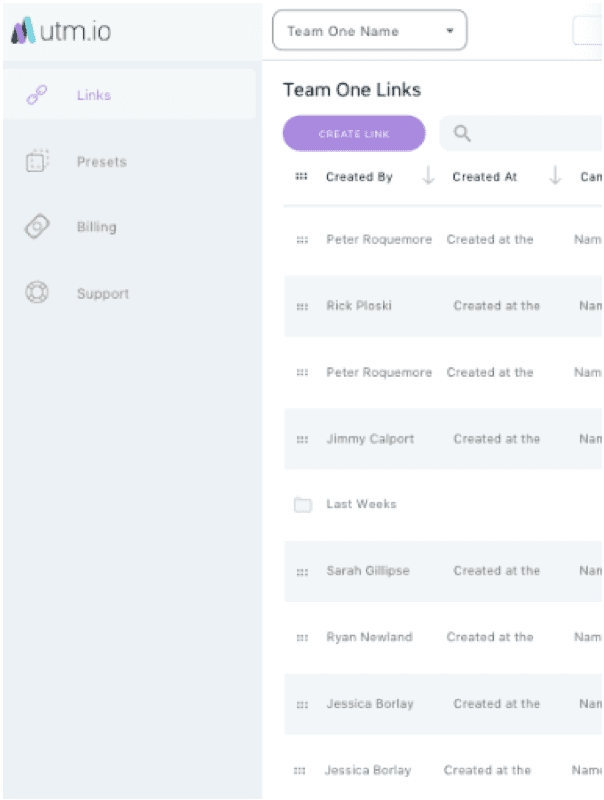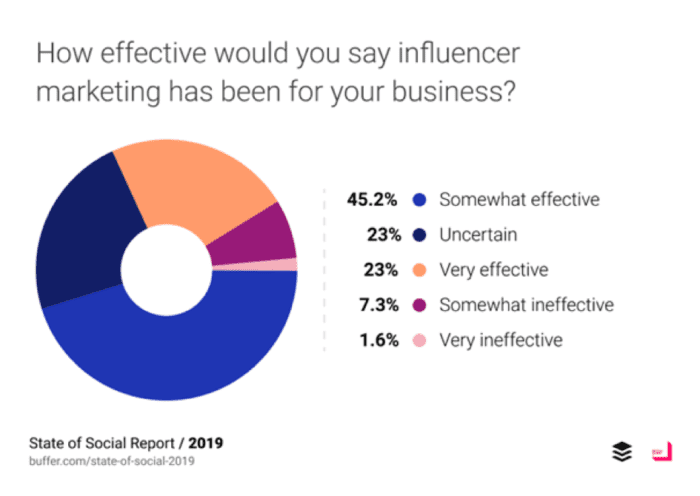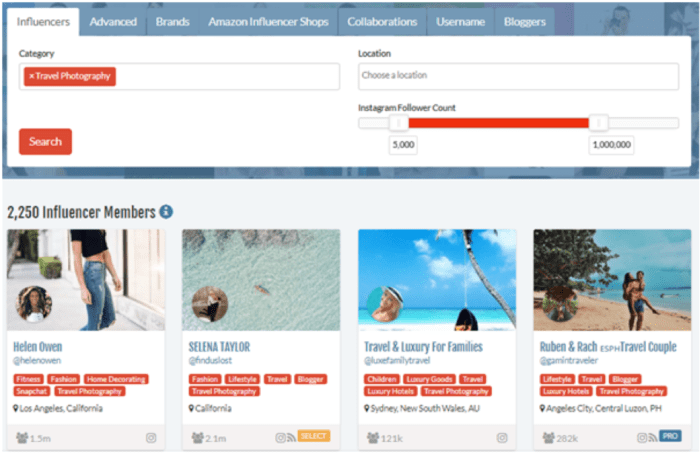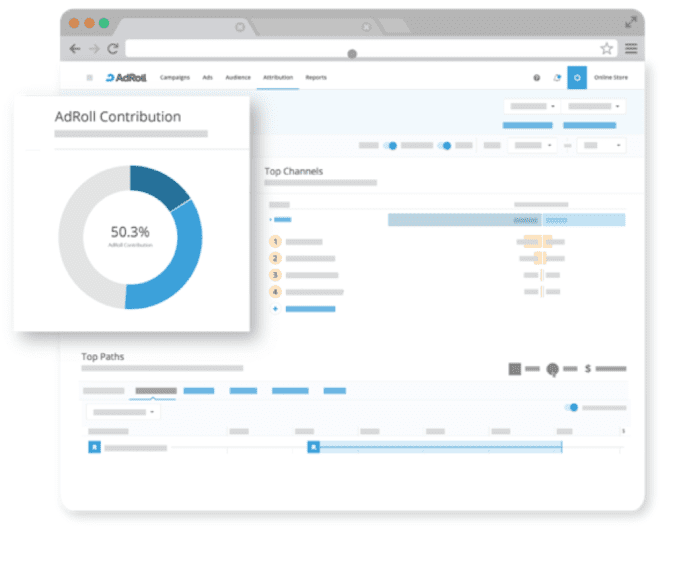Unless you know where you currently stand, you won’t know what to work on and what kind of improvements you’re making
There’s no doubt that social media is an important channel for marketing, especially with the increasing user base and rapidly evolving features. In fact, 73% of marketers in the State of Social survey said that social media marketing has been effective for their businesses.
That said, some businesses may not get the desired results out of their social media marketing efforts – mainly because they’re making critical mistakes.
In this post, you’ll discover some of the best ways to improve the ROI of your social media marketing campaigns. Let’s take a look:
1. Use UTMs to track your performance
As you’ve probably already learned from the previous Smart Insights post on social media ROI, you can’t improve what you don’t measure. Unless you know where you currently stand, you won’t know what to work on and what kind of improvements you’re making.
Most social media platforms have native analytics to help you measure your performance in terms of post engagement and reach. That’s not always enough to get a clear picture of your social media ROI, especially when you’re running a specific campaign. They don’t really tell you how much traffic your campaign is generating through social media, so you get incomplete performance data.
Sure, you may be able to track all of the social media traffic coming to your site, but some of that traffic may not be a result of your campaign. To simplify the process of tracking your social media marketing campaign performance, I suggest using campaign-specific UTM parameters.
This will help you get a clear idea of the traffic coming from a specific campaign. So you’ll get an accurate picture of your social media marketing ROI. Even if you don’t know how to create UTM parameters, you can always use tools like UTM.io. This tool saves you time with existing UTM templates that you can customize for your campaign.
It also keeps track of how your links are performing, who created them, when they were created, and more. This makes it extremely easy to organize your efforts and campaign data.

2. Focus on tactics that deliver
If you’ve been measuring your social media performance using native analytics, you’ll get a clear picture of what works for you based on how people are engaging with your posts. You can use those insights to optimize your social media content strategy and posting schedules.
Since you’ll be focusing on tactics that are delivering much better results, you’re likely to improve your performance and ROI as a whole. For example, let’s say your article links are getting a lot more clicks when you share them with a relevant photo. In this case, you should use this tactic more often for consistently high click-through rates.
Alternatively, let’s say you managed to gain a ton of new followers when you launched a giveaway campaign. Also, a lot of those followers stayed instead of unfollowing you as soon as the campaign was over. Perhaps you could start doing giveaways more often – maybe once a month or every other month – to gain more exposure.
3. Partner with influential users
It’s safe to say that influencers rule social media these days. Social media users look up to these influencers but still relate to them as everyday consumers. This makes them highly impactful when influencing people’s purchase decisions because their opinions are seen as more authentic.
In fact, 31% of respondents in an Olapic survey bought something after seeing it in an influencer’s post.
The best part is that these influencers have massive followings, sometimes extending to the millions. So they have the power to improve your campaign reach, boost brand visibility, and increase your ROI. In fact, 68% of marketers in the previously-cited State of Social survey found influencer marketing to be effective for their businesses.

While influencer marketing is effective, it’s crucial that you partner with people who can influence your target audience. Not every influencer will be right for your brand. Some may be extremely impactful for e-commerce marketing, while others will be perfect for B2B marketers. Understand what type of people your target audience looks up to and find an influencer that fits those characteristics.
You can use influencer discovery platforms like BuzzSumo and Influence.co to find the most relevant influencers in your industry. You can conduct a search using relevant keywords and within specific verticals. These tools will also show you the influencer’s stats so you can see whether they’re the right fit for your brand.

4. Share user-generated content as social proof
Consumers trust other consumers. Another Olapic study found that people trust social media images from other consumers seven times more than advertising. Some 56% of the survey respondents were more likely to buy something after they saw it in a user-generated image. These numbers show just how impactful user-generated content can be on social media.
So if you share images of your product or service being used by real people, it’s a great way to win the trust of potential customers on social media. You’ll be able to entice them to make a purchase, helping you boost your social media marketing ROI.
You can share a branded hashtag or a product-specific hashtag with your customers and ask them to use it in their posts. This will help you keep track of new user-generated content and reshare it on your brand’s social media profiles. When you reshare your customers’ images, it will help strengthen your relationships with them by making them feel appreciated. Plus, it will bring your brand more exposure by introducing you to their networks.
Wayfair does an excellent job of implementing user-generated content into its social media strategy. It frequently shares high-quality photos from customers who are using their products. The company then invites its followers to “tap to shop” for similar products. In the image below, Wayfair is showcasingits products in context and giving purchase inspiration to social media users.

5. Retarget the right people
Finally, you can improve your social media marketing ROI by re-engaging people who have already shown an interest in your brand and products with retargeting ads. You could target people who have visited your website, engaged with your campaign in the past, or even left some items in their carts. In simpler terms, you’ll be turning window-shoppers into actual buyers.
Since they’ve already shown an interest, there’s a good chance you’ll be able to convert them with a little reminder. You can use retargeting vendors like AdRoll to design your retargeting campaign.
This will help you deliver relevant ads with personalized product recommendations based on an individual’s browsing behavior. It also comes with built-in analytics so you can easily measure the impact of your campaign.

Final thoughts
These are some of the best ways to boost your social media marketing ROI. Measuring your performance is a must, and campaign-specific UTM parameters can help you do just that. You can even identify the most effective tactics and focus your efforts on them. Of course, retargeting people who have shown an interest in your brand will help you drive better ROI.
Most importantly, leverage real people in your campaign – whether they’re influencers or everyday consumers. This will help you win people’s trust and eventually improve your ROI. Once you’ve nailed down the basics, you can use these tips to optimize your strategy for a bigger impact.

